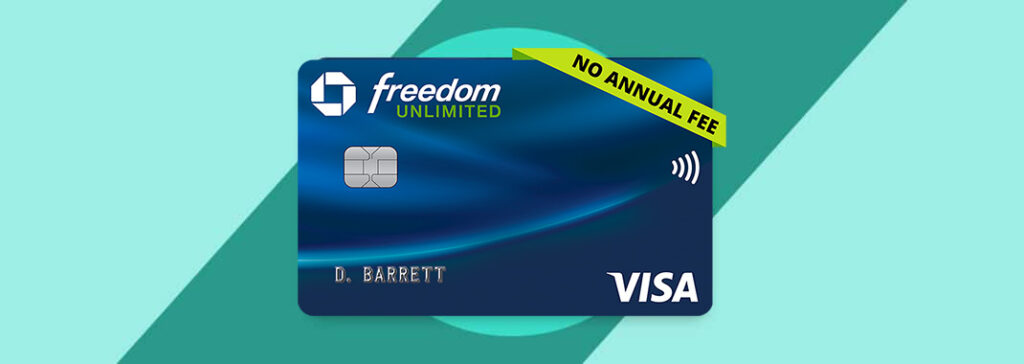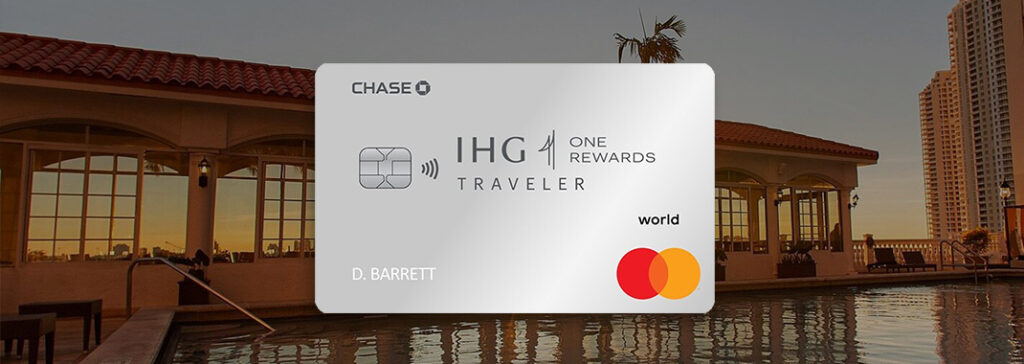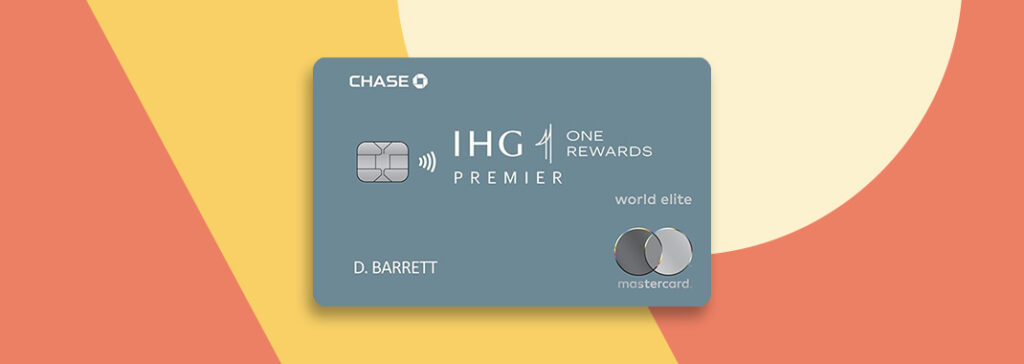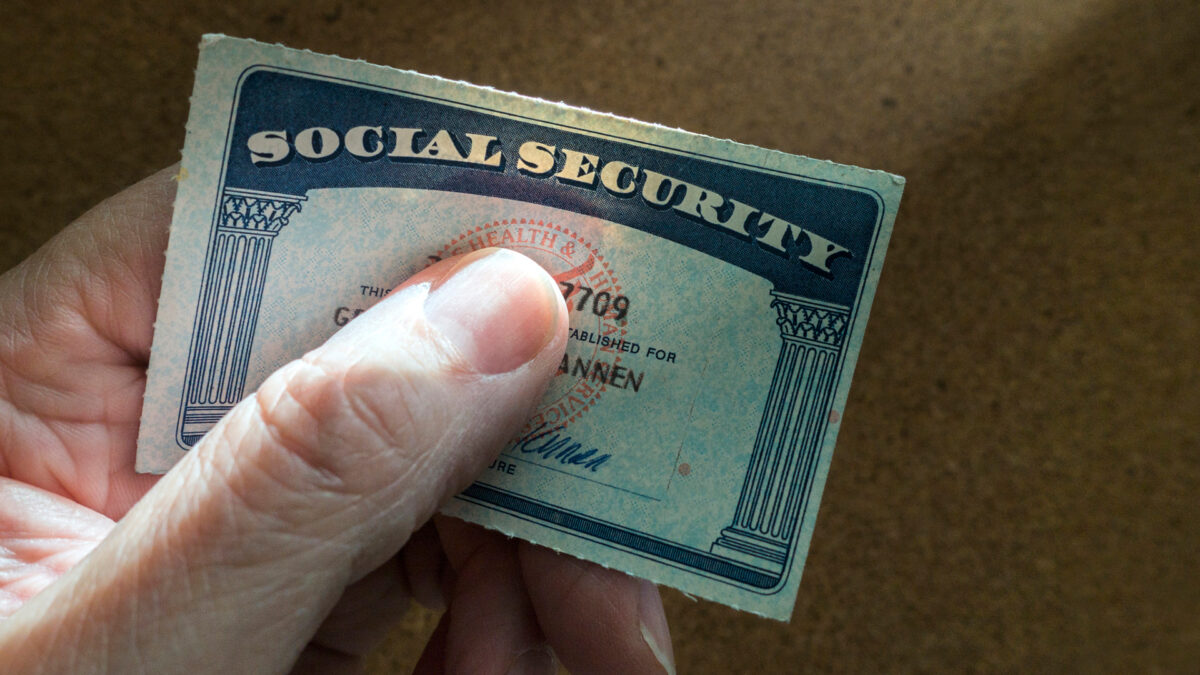Most products on this page are from partners who may compensate us. This may influence which products we write about and where and how they appear on the page. However, opinions expressed here are the author's alone, not those of any bank, credit card issuer, airline or hotel chain.
Credit card fraud is a growing problem, with
Scammers are getting more sophisticated in their methods of stealing vulnerable data. Let’s examine the most common credit card scams users are falling prey t
1. Identity Fraud Scams
What is it: Identity fraud scams involve criminals stealing personal information, such as name, address, and Social Security number, and using it to open new accounts or make purchases on existing ones.
For example, a scammer could use your stolen identity to open a new credit card account in your name and make purchases on it without your knowledge.
How common is it: Identity fraud scams are a serious and growing problem in the United States. The Federal Trade Commission’s (FTC) Consumer Sentinel Network took in over 5.1 million reports in 2022, of which 46% were for fraud and 22% for identity theft.
Credit card fraud accounted for 43.7% of identity thefts, followed by miscellaneous identity theft at
Quick Tip
Miscellaneous identity theft includes fraud through online shopping, payment accounts, email and social media.
How to protect yourself: Protecting yourself from identity fraud scams requires vigilance and caution. Here are some tips to help you avoid becoming a victim:
- Monitor your credit reports and bank statements for any suspicious activity. Many credit card companies and banks offer free monitoring services to help you detect any unauthorized transactions.
- Never give out personal details to anyone unless you're sure they're legitimate. This includes your Social Security number, date of birth and financial information.
- Use strong and unique passwords for all your online accounts and consider using a password manager to help you keep track of them.
- Use two-factor authentication whenever possible, which adds an extra layer of security to your online accounts.
- Be cautious when clicking on links or downloading attachments from unknown sources, as these could be phishing scams designed to steal your personal informat
ion.
2. Skimming Scams
What is it: Skimming scams capture card information by attaching the wiring to point-of-sale devices, ATMs and gas stations, which can be used to create fake cards with stolen information.
For example, a scammer could attach a skimming device to an ATM you use regularly and capture your card information as you enter it.
How common is it: According to FICO, skimming attacks increased by 700% in the first half of 2022. It’s estimated that skimming costs consumers and their financial institutions more than $1 billion each year.
How to protect yourself: Protecting yourself from skimming scams requires awareness. Here are some tips to help you avoid becoming a victim:
- Cover the keypad when entering your PIN to prevent anyone from seeing it.
- Use ATMs located inside banks or other secure locations.
- Regularly check your bank statements for any unauthorized charges.
- Be cautious of any card readers or ATMs that look suspicious or have loose wiri
ng.
3. Interest Rate Reduction Scams
What is it: Interest rate reduction scams are fraudulent robocalls that claim to lower your credit card interest rate. For example, a scammer could call you and offer to lower your credit card interest rate if you provide your credit card information over the phone.
How common is it: Interest rate reduction scams are a common form of telemarketing fraud. According to the Federal Trade Commission, consumers reported losing nearly $8.8 billion to fraud in 2022, with telemarketing fraud resulting in $1,400 per person on average.
How to protect yourself: Here are some tips to help you avoid becoming a victim:
- Never provide your credit card information over the phone or online unless you initiated the call and know that the company is legitimate.
- Hang up immediately if you receive a robocall offering to lower your interest rate, as these calls are almost always fraudulent.
- Contact your card issuer directly if you want to negotiate a better ra
te.
4. Phishing Scams
What is it: Phishing scams involve fraudsters pretending to be a legitimate entity, such as your bank or credit card issuer, in order to get your personal information. No reputable company will ever ask for this type of information via email or over the phone, so always verify the legitimacy of the message before responding by checking with the company directly using contact details from their website.
For example, a scammer could send you an email that appears to be from your bank, asking you to click on a link and enter your login credentials.
How common is it: Phishing scams are a widespread and growing problem. According to phishing statistics, there were over 323,970 phishing victims in 2021 with millennials and Gen-Z users being most likely to be victimized. Phishing is now the most common form of cybercrime with an estimated 3.4 billion emails sent per day.
How to protect yourself: Here are some tips to help you avoid becoming a victim:
- Always double-check the sender's email address and be wary of any emails from unknown senders.
- Never click on links or download attachments from unknown sources.
- Verify the legitimacy of the message by contacting the company directly using contact details from their website.
- Use anti-phishing software or browser extensions to help detect and block phishing attem
pts.
5. Reward Scams
What is it: Reward scams and fraudulent sweepstakes target unsuspecting shoppers with too-good-to-be-true deals or prizes. These rewards don't actually exist and are designed to lure unsuspecting shoppers into downloading malware onto their devices.
For example, a scammer could send you an email claiming that you have won a free vacation, but to claim the prize, you need to download a file that contains malware.
How common is it: Reward scams are another form of phishing and malware distribution that takes up a portion of the 323,970 victims of phishing scams in the 2021 statistics we referenced in the section above.
How to protect yourself: Here are some tips to help you avoid becoming a victim:
- Be wary of unsolicited offers or prizes that seem too good to be true.
- Never download files or click on links from unknown sources.
- Use anti-malware software to protect your devices from malware and other cyber thre
ats.
Best Rewards Credit Cards
Visit the Marketplace
6. Security Breach Scams
What is it: Security breach scams are another form of phishing scams. They involve fraudsters gaining access to a company's customer database to steal personal information.
For example, a scammer could send you an email claiming that your account information was compromised in a recent data breach and ask you to click on a link to verify your information.
How common is it: Security breach scams are a growing form of cybercrime that fall under phishing data and are one of the four main entry points to a company.
How to protect yourself: Here are some tips to help you avoid becoming a victim:
- Be wary of mass emails or texts that look similar to official messages from the company.
- Never enter personal information unless you're sure the website is legitimate.
- Use strong, unique passwords for each of your accounts and enable two-factor authentication whenever possible.
- When in doubt, contact your HR department or manager to confirm an email is legiti
mate.
7. Social Security Benefits Scams
What is it: Social Security benefits scams involve imposters pretending to be from the Social Security Administration (SSA) and asking for payment or bank account information.
For example, a scammer could call you and claim to be from the Social Security Administration, asking for your bank account or credit card information in order to deposit your benefits.
How common is it: Social Security benefits scams are a common form of government imposter scams. According to the Federal Trade Commission, consumers reported losing over $75.7 million to SSA imposter scams in 2022.
How to protect yourself: Here are some tips to help you avoid becoming a victim:
- Never provide personal or financial information over the phone or online unless you initiated the call and know that the company is legitimate.
- Hang up immediately if you receive a call claiming to be from the Social Security Administration and asking for payment or bank account information.
- Contact the Social Security Administration directly using contact details from their official website to verify the legitimacy of t
he call.
8. Government Imposter Scams
What is it: Government imposter scams involve cons pretending to be from a government agency and asking for payment or sensitive information. No legitimate government agency will ever ask for this type of information over the phone or email, so hang up and contact the agency directly if you receive a call like this.
For example, a scammer could call you and claim to be from the IRS, asking for your Social Security number and credit card information to pay off a tax debt.
How common is it: According to the Federal Trade Commission, consumers reported losing over $2.6 billion to imposter scams in 2022. Plus, about one in five people (22%) lost money in these scams with a reported median loss of $1,000.
How to protect yourself: Here are some tips to help you avoid becoming a victim:
- Never provide personal or financial information over the phone or online unless you initiated the call and know the company is legitimate.
- Hang up immediately if you receive a call claiming to be from a government agency and asking for payment or sensitive information.
- Contact the government agency
- Only use contact details directly from their official website to verify the legitimacy of the
call.
9. Arrest Scams
What is it: Arrest scams involve criminals posing as law enforcement and pressuring victims into paying an imaginary debt or fine via credit card information. The U.S. government will only legally summon citizens through written documentation, so don't fall for this scam.
For example, a scammer could call you and claim that you have an outstanding warrant for your arrest and demand payment via credit card information.
How common is it: Arrest scams are a common form of government imposter scams that also fall under the $2.6 billion in losses we mentioned above.
How to protect yourself: Here are some tips to help you avoid becoming a victim:
- Hang up immediately if you receive a call claiming that you have an outstanding warrant for your arrest and demanding payment.
- Never provide personal or financial information over the phone or online unless you initiated the call and know that it is legitimate.
- Contact the law enforcement agency directly using contact details from their official website to verify the legitimacy of the c
all.
10. Charity Scams
What is it: Charity scams involve fraudsters posing as known charities and asking for donations to help those affected by a current news story. For example, a scammer could call you and claim to be from a well-known charity, asking for a donation to help victims of a recent natural disaster.
Although legitimate charities do ask for donations via email and/or phone, contact the charity directly using their website if you receive an unsolicited call or email requesting donations.
How common is it: Charity scams are a common form of fraud, especially after natural disasters or other tragedies. The IRS featured this form of exploitation as a part of its “Dirty Dozen” campaign to bring awareness to the issue.
How to protect yourself: Here are some tips to help you avoid becoming a victim:
- Always research the charity before making a donation and be wary of any unsolicited calls or emails requesting donations.
- Contact the charity directly using their website or known contact information to verify the legitimacy of the request.
- Never provide personal or financial information over the phone or online unless you initiated the call and know that the charity is legitimat
e.
11. Public Wi-Fi Scams
What is it: Public Wi-Fi scams involve criminals stealing personal information through unsecured networks. For example, a scammer could set up a fake public Wi-Fi network at a coffee shop and capture your login credentials as you connect to it.
How common is it: According to a recent survey, 35% of people use public Wi-Fi three to four times monthly. With the most common places being restaurants (38%), hotels (38%) and the library (33%).
How to protect yourself: Protecting yourself from public Wi-Fi scams requires caution and the use of secure networks. Here are some tips to help you avoid becoming a victim:
- Avoid using public Wi-Fi for sensitive transactions, such as online banking or email.
- Use a virtual private network (VPN) to encrypt your data and protect your privacy when using public Wi-Fi.
- Only use secure, password-protected Wi-Fi networks when connecting to public Wi-Fi net
works.
12. Overcharge Scams
What is it: Overcharge scams involve fraudsters asking for verification of credit card information for refunds or purchases.
For example, a scammer could call you and claim that they accidentally overcharged you for a recent purchase but, in order to issue a refund, they need your credit card information.
How common is it: According to the Federal Trade Commission, credit card new account fraud was up 13% in 2022. Credit card fraud falls into the same category as identity theft which amounted to $8.8 billion in total fraud losses in 2022.
How to protect yourself: Protecting yourself from overcharge scams requires caution and attention to detail. Here are some tips to help you avoid becoming a victim:
- Always check your credit card statement to verify the charge before providing any personal or financial information.
- Only provide your credit card information on secure, reputable websites.
- Double-check the URL before entering any financial details to ensure that you're on a legitimate websit
e.
Stay Vigilant and Protect Your Finances
Scamming has gotten more sophisticated, harder to spot and is racking up billions in lost funds for businesses and consumers. Protect yourself by being cautious, double-checking the source before entering personal information online, and never providing your credit card number unless you're sure the website is legitimate. When in doubt:
- Don’t open the email
- Don’t answer the call
- Don’t enter your information
- Contact the reputable source through their main website or phone number
In the event that you believe you're a victim of fraud, request your free credit report and dispute any unknown charges or accoun



















